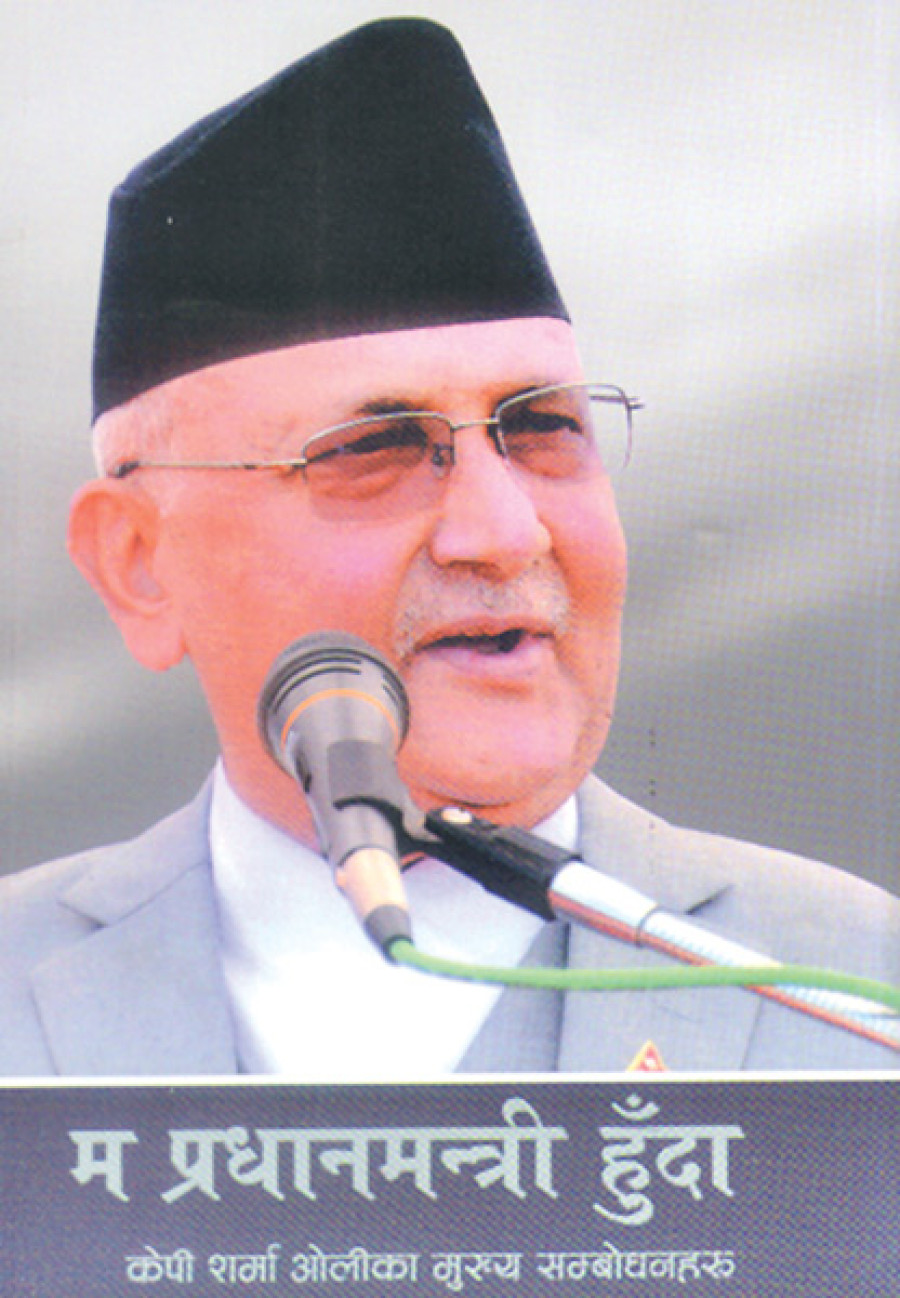Opinion
Oli’s follies
His words and actions have been unfair to some groups of Nepalis, including the Christians
Ramesh Khatry
During his nine month tenure as the prime minister of Nepal, KP Oli did some good things for the country. However, for two groups, his follies have made more of a mark. He has angered some Madhesi people beyond repair and he has made life difficult for apolitical Christians who are easy targets.
On April 2, 2016, Oli’s government declared that December 25 will be a “holiday only to Christian civil servants”. Why was Oli’s government so stingy towards the one day that celebrates the birth of Jesus Christ? Perhaps, Oli wanted to show his superiority by overturning octogenarian Nepali Congress prime minister Girija Prasad Koirala’s decision to declare Christmas a holiday.
The present Prime Minister Pushpa Kamal Dahal tried to correct Oli’s folly and once again declared Christmas a national holiday on December 24, 2016. However, because it was such a last-moment announcement, some Christian children ended up attending classes instead of going to church on Christmas day. Now, the Dahal-led government has followed Oli’s example by making Christmas a holiday for Christians exclusively. This change has occurred despite the government’s identification of 19 Hindu festivals, two Muslim festivals and three Lhosars as national holidays.
Four directives
On June 21, 2016 Oli’s government issued four directives to regulate every non-governmental organisation (NGO). The fourth directive states, “While accepting a programme or giving prior permission, refuse a project that preaches religion or has similar aims.”
In theory, the fourth directive should prohibit the preaching of any religion, including Hinduism, Buddhism and Islam. However, no one doubts that Oli has aimed the directive at Christians. Many of the 600 parliamentarians use the Rs5 million under the Constituency Development Programme to build and renovate temples, yet Oli’s government ignored this. It also ignored the fact that most temples have free electricity for bright lights and cooking.
Oli’s fourth directive has negatively affected many Christian NGOs that have a difficult time getting their programmes approved by both the District Development Committee (DDC) and the Social Welfare Council (SWC). Till 2015, our NGO, the Association for Theological Education in Nepal (ATEN), had to wait about three months for programme approval from the DDC and the SWC. After Oli’s directive, ATEN has spent nine months waiting for this approval. A DDC official visited ATEN and insisted that we remove any reference to prayer, church, Bible and Bible colleges in our application.
I told him that such a command goes against the fundamental freedom of expression. When we demanded a written letter citing his refusal to approve our programme so we could start legal proceedings and approach the courts, the official said that we could pay officials an allowance to hold a meeting wherein which our fate would be decided. Written permission from the DDC arrived one hour after ATEN paid the total amount for allowance. We haven’t even received an official receipt for the amount.
Then the trips to the SWC began. After about seven visits, the SWC accepted the heavily edited file, and told ATEN to come after 10 days. Thus, the process that began in July concluded in April. Yet, both the DDC and the SWC demand a progress report every four months.
In a book of his own speeches Ma Pradhanmantri Hunda (When I Was Prime Minister), Oli mentions that the UML stands for human rights and fundamental freedoms. In reality, Oli has violated both national (Nepal’s Constitution 2015, Part 3:17:2a) and international law (Article 18 of the UN Universal Declaration of Human Rights) by issuing his fourth directive.
In the so-called secular Nepal, Christians face courts and jails for activities natural to their faith. On June 9, 2016 the police arrested seven Christians during a programme among school children in Charikot, Dolakha. After a lengthy court case, the judges could not find anything against them, and ordered their release after six months on December 6. Less fortunate are the four Christians (one male, three females) who, since December 19, have each been fined Rs50,000 and jailed for five years in Salyan for the “terrible” crime of holding a prayer meeting for a sick person.
Some suggestions
The government should decide whether Christians are citizens of this country or not. If it thinks they are not, it should expel them the way Prithvi Narayan Shah did in 1769, shut down Christian radio stations, ban Christian schools, and receive no aid from international Christian organisations. But if the government thinks Christians are citizens of the country, freedom of speech should equally apply to them. If Oli can preach the glory of the outdated Leninism and Marxism and bring converts to UML, why cannot Christians write about the Bible, prayer and churches in their applications? Does the government want the hundreds of underground Christian organisations to operate legally and pay taxes? If so, harassing legal Christian NGOs does not encourage them to register with the government.
The Commission for Investigation of the Abuse of Authority should investigate how the DDC and the SWC officials are going against the constitution, overstepping the powers they have, and issuing diktats according to their whims. The present government should withdraw Oli’s directives through which the DDC and the SWC are encouraging bribery and extortion.
Even Russia’s President Vladimir Putin has realised that the Soviet Union could not suppress the Christians, and has begun befriending the Orthodox Church there. The sooner our authorities correct Oli’s follies, the better it is for the whole country.
Khatry is the Executive Director of Association for Theological Education in Nepal




 16.12°C Kathmandu
16.12°C Kathmandu










